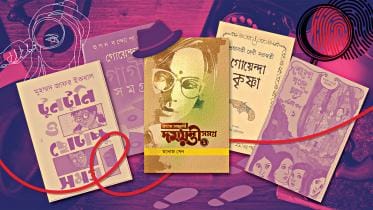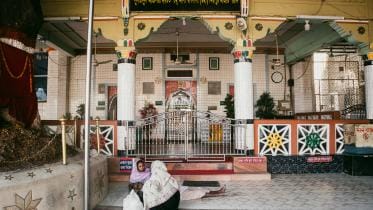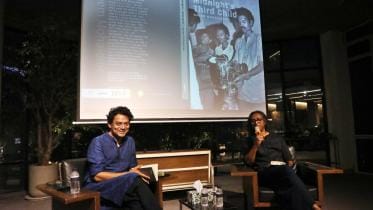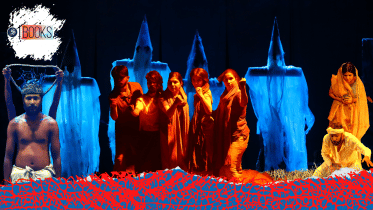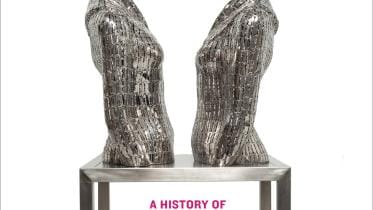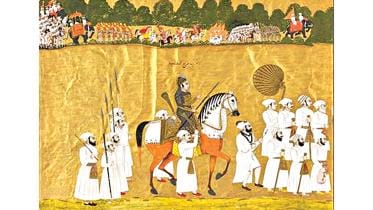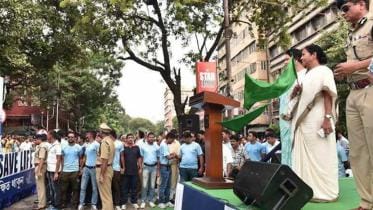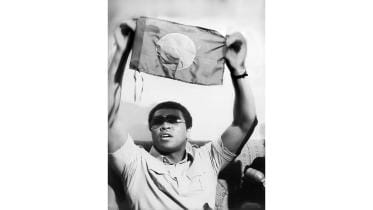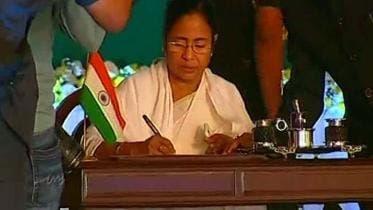Bengal
Christian conversion and the politics of faith in colonial Bengal
While Europe experienced an age of evangelical awakening in the eighteenth century, political circumstances in India posed challenges to the work of missionary preaching.
18 August 2025, 13:22 PM
Echoes of colonialism in Bangladesh
In navigating colonialism, we have to ask ourselves, who is striving for control.
21 August 2024, 05:00 AM
Arko Mukherjee pays homage to Shafin Ahmed
Miles, a renowned Bangladeshi band, struck a chord with the youth of Kolkata, especially during the 1990s. Shafin Ahmed, a former leading light in the band, became an icon for aspiring musicians in the band music scene. The recent passing of Shafin Ahmed has left a void in the hearts of many in Bengal, especially in Kolkata, as they mourn the loss of the star.
27 July 2024, 07:30 AM
Where are Bangla literature’s female detectives?
During the mid 20th century, when female wordsmiths somewhat flourished with their newly published works, they were still suppressed under the dominance of male authors.
10 January 2024, 18:00 PM
The scattered legacies of Bengal's Sufis
Sufis have a long history in this region, bringing Bengal into contact with Islamic thought and practice before Bakhtiyar Khalji’s conquest in 1203.
20 November 2023, 03:00 AM
Naeem Mohaiemen discusses ‘Midnight’s Third Child’ at ULAB and Bengal Institute
Naeem Mohaiemen called the book and its selections, which comprise fairly short essays and editorials on contemporary matters, “an argument for somehow recording all that seems ephemeral, so we can then look back and trace what was happening.”
26 May 2023, 00:00 AM
Toward Ladyland: On the life and work of Rokeya Sakhawat Hossain
Her 1903 piece “Alonkar na badge of slavery” marked the start of Rokeya’s explicitly feminist writing.
8 December 2022, 00:00 AM
‘Nil Chhaya’ reconjures ghosts of Bengal’s Indigo Revolution
‘Nil Chhaya' connects the Indigo Revolt to the oppressions faced by present day garment factory workers in Bangladesh.
24 September 2022, 09:03 AM
‘Sisters In The Mirror’ deconstructs the concept of "oppressed Muslim women"
"While the book is based on academic research, I've tried to write it for the 'interested educated reader'".
12 September 2022, 12:45 PM
A history of this subcontinent, woven in jute
The book reveals how in mid-19th century colonial East Bengal jute first emerged “as a global commodity”
6 July 2022, 18:00 PM
Hardback edition released of ‘Inherited Memories’, Goethe-Institut and Zubaan Books’ project on the 1947 partition
Zubaan Books has released a hardback edition of Inherited Memories: Third Generation Perspectives on Partition in the East, concerning the still-felt ramifications of the 1947 partition.
5 September 2021, 11:37 AM
Radio, ghazals, and “Islami gaan”: What Nazrul’s shift to music said about his syncretism
The adoption of the ghazal by Nazrul, with renewed fervour in the late ’20s and ’30s, signaled an understanding that his earlier literary and linguistic world was an impermanent one, as was a politics in which the unity of Hindus and Muslims was achieved through an appeal to a shared culture and language.
1 September 2021, 18:00 PM
Into the nuances of history: Sudeep Chakravarti unpacks the Battle of Plassey
Sudeep Chakravarti is an eminent commentator and author whose narrative non-fiction and fiction have been translated into Bangla, Hindi, Spanish, Portuguese, German and more. In January 2020, his book—Plassey:
24 June 2020, 18:00 PM
West Bengal Assembly passes resolution to change name of state
The West Bengal Legislative Assembly passes a resolution to change the name of the State to ‘Bengal’ in English, ‘Bangal’ in Hindi and ‘Bangla’ in Bengali.
29 August 2016, 11:54 AM
Bangladeshi descent Margarita Mamun wins gymnastics gold
Bangladeshi descent Russian world number one rhythmic gymnast Margarita Mamun wins gold in the women's individual all-around rhythmic gymnastics event at Rio de Janeiro's Olympic Arena.
21 August 2016, 04:12 AM
Bangladesh I Love You
37 years ago on February 18, Muhammad Ali, the “greatest heavyweight boxer ever,” came to Bangladesh along with his wife for a five-day visit. During the visit, wherever Ali went, he was greeted wholeheartedly by tens of thousands of fans.
4 June 2016, 06:18 AM
Mamata takes oath as West Bengal’s chief minister
Mamata Banerjee takes oath today as West Bengal's chief minister for a second term. It's the biggest oath ceremony Bengal has ever seen, reports NDTV.
27 May 2016, 07:44 AM
Imtiaz Ali spreads positive buzz for Bengali film 'Teenkahon'
Filmmaker Imtiaz Ali has taken a keen interest in promoting adman Bauddhayan Mukherji's feature debut "Teenkahon".
2 September 2015, 15:14 PM
Did you know why Alexander did not proceed to conquer ancient Bengal?
At around 300 BC, when Alexander the great came to conquer Bengal—then known as Ganga Rashtra, meaning Nation on the River Ganges, alias Gangaridai—he abandoned the idea of going further considering the military strength of the then ruler.
12 August 2015, 10:40 AM
Bengal famine: Remembering WW2's forgotten disaster (video)
In 1943, during World War Two, Bengal in British-run India was hit with a severe shortage of food.
7 August 2015, 05:13 AM



